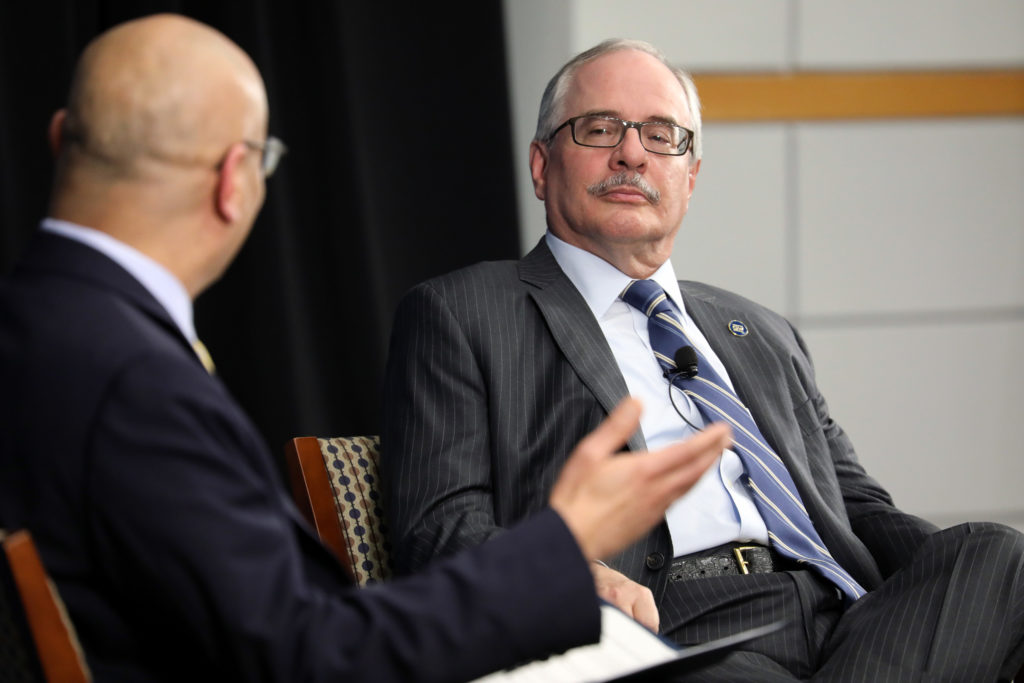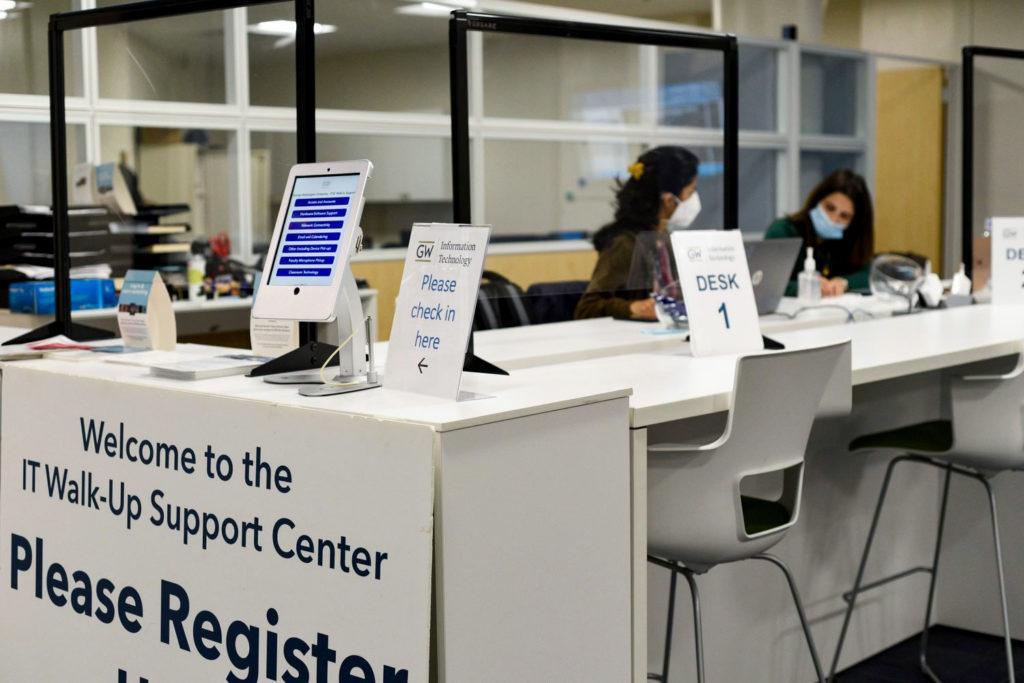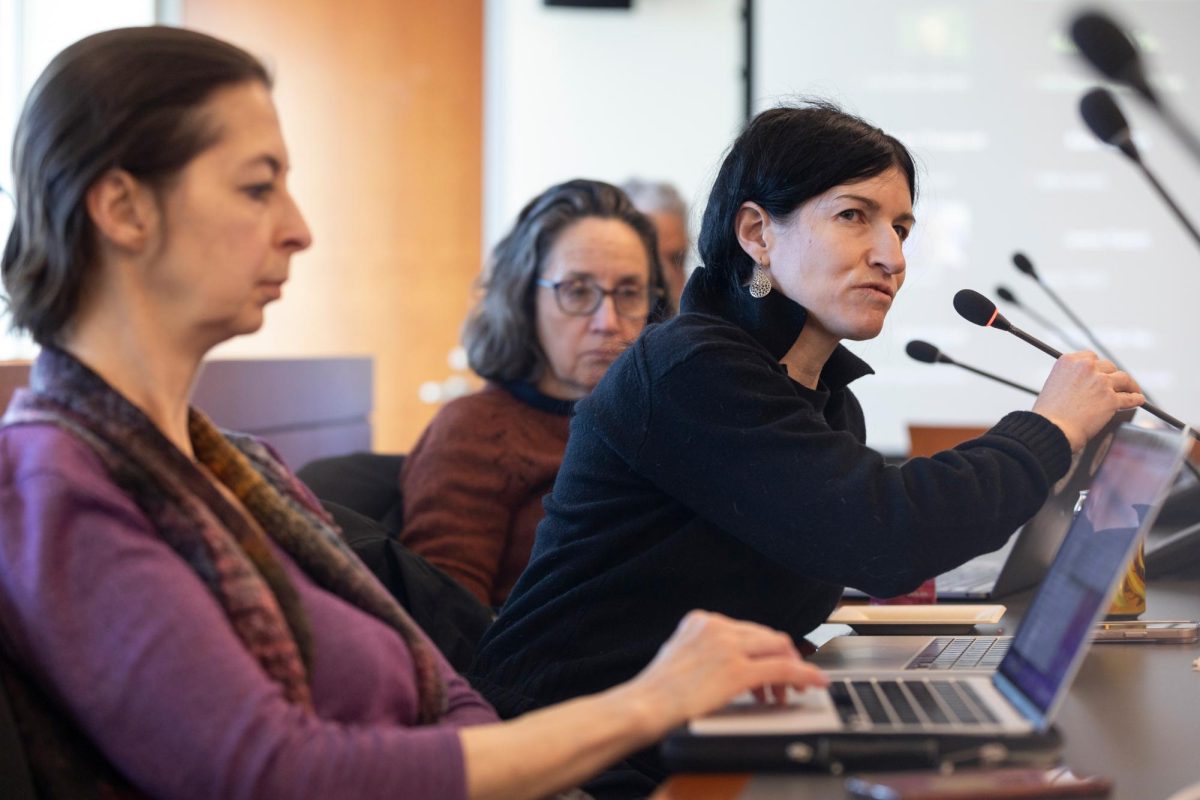Experts said University President Thomas LeBlanc may have refused to say what led to the hiring of an official involved with the Larry Nassar sexual abuse scandal because of legal concerns.
The Faculty Senate voted earlier this month to recommit a resolution censuring LeBlanc for hiring Michigan State University official Heather Swain to a senate committee, asking committee members to meet privately with LeBlanc so he can speak more frankly about the hiring. Employment law experts said publicly sharing details about controversial hirings could potentially lead to a defamation suit against the University.
The censure resolution, which could be placed on the senate’s agenda at its meeting on Oct. 9, would request a “full and complete” report of the vetting process for Swain’s hiring. Swain withdrew her job offer as GW’s vice president for communications and marketing last month after rampant criticism of her role in shielding information from prosecutors during the Nassar suit.
Arthur Wilson, the chair of the senate’s executive committee, said at the senate meeting earlier this month that the executive committee has worked “very hard” to receive an explanation from LeBlanc, but the committee has “consistently” been told GW’s lawyers will not allow LeBlanc to “go into detail.”
Employment and labor law experts say there is no explicit law prohibiting an employer from disclosing the details of a staff hire, but officials could have entered into a settlement agreement that prohibits them from discussing the details of the hire. They said LeBlanc could theoretically disclose general information like the occurrence of a vetting process without going into what they uncovered during the investigation.
Barbara Lee, a professor of human resource management at Rutgers University, said potential legal liability may play a part in employers’ reluctance to disclose hiring details.
“Unless the University has a clear policy that requires the president to confer with others or to provide details about a search or a hiring decision, I’m not aware of any other legal limitations on the president’s authority,” Lee said in an email.
Lee said there are “disincentives” for employers to disclose the circumstances of a hiring, like confidentiality concerns with respect to the candidate.
“There could be confidentiality concerns like who the other candidates were, why they were not chosen, what was learned during reference checks,” Lee said. “Negative information disclosed about any particular candidate could become the basis for a defamation lawsuit.”
GW policy requires officials to oversee a “standard background screening” for all “finalists” for faculty and staff positions, which are normally conducted by third-party vendors. Hiring records are then kept on file for at least two years.
Joseph Hornack, a professor of law at the University of Pittsburgh, said it’s not uncommon for legal counsel to take a “cautious approach” with determining what hiring information to disclose publicly.
“The attorney might be nervous about disclosing information because if they end up disclosing something that indicates some form of bias in the hiring or not following certain best practices or ends up disclosing something that potentially could be damaging to the applicant’s reputation, there could be legal implications there,” he said.
Hornack said if the information disclosed is false and does damage to the reputation of the applicant, then the University could be subject to a defamation lawsuit. But he said there is no valid defamation claim if the information disclosed is true.
Hornack added that instances where a job offer was either rescinded or withdrawn could have negative consequences on a university’s reputation.
“It certainly can do some damage to the university’s reputation to have made a hiring decision and then having to back down because they didn’t do the proper checking of the applicant before hiring,” he said.
Orly Lobel, a distinguished professor of law at the University of San Diego, said while the president doesn’t have a legal obligation to speak about the hiring process, he isn’t legally barred from it either.
Lobel said a president’s only limitation to revealing information would be signing a non-disclosure agreement. She said depending on how the NDA was drafted and the scopes of the contract, LeBlanc may have limits in speaking out.
“It is good practice for a university to have relative transparency in hiring processes,” she said in an email. “Though the reality is that these organizations, especially private universities, have been increasingly conducting hiring processes with opacity and secrecy.”
She said the president could supply some information about the hire rather than information that was disclosed during the vetting process, like reassuring the community that the people involved in the process were independently investigated.
Lobel added that universities have a high interest in doing “due diligence” with respect to candidates, like contacting previous employers and vetting the candidate so that there “aren’t any skeletons left uncovered.”
“This is especially true at universities where faculty governance is a fundamental principle,” she said. “Especially true these days when we know that systematic patterns of wrongdoing and hushing of unlawful and unethical activities have been exposed in a range of institutions.”
Lynne Bernabei, an employment discrimination lawyer at D.C. law firm Bernabei & Kabat, said transparency is especially essential in the hiring process for higher-level administrators given their power in the university and the vulnerability of students.
She said incorporating students and faculty in the vetting process, conducting background checks and having public sessions discussing the hire could make the process more open.
“Higher-level administrators have more authority and power at the university,” she said. “There is a need to be even more careful with these hires.”








